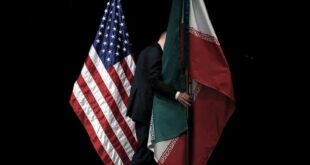 TEHRAN (Fars News Agency)- Iran’s Foreign Ministry Spokesman Seyed Mohammad Ali Hosseini underlined that Tehran has not altered its nuclear stances and is still pursuing the same goals.
TEHRAN (Fars News Agency)- Iran’s Foreign Ministry Spokesman Seyed Mohammad Ali Hosseini underlined that Tehran has not altered its nuclear stances and is still pursuing the same goals.
Speaking to reporters in his weekly press conference here on Sunday, Hosseini responded to the question whether Tehran may change its nuclear stances, specially with regard to the protests recently shown by some MPs at the nuclear policies of President Ahmadinejad, and said, “The official stance of the ruling system in the nuclear issue is the result of contemplation, discussion and a consensus gained at the country’s Supreme National Security Council (SNSC).”
“Thus, the country’s nuclear stance is supported by all,” he continued, saying that no change has been made to Iran’s nuclear stances.
Stressing that the International Atomic Energy Agency (IAEA) is informed of all Iran’s nuclear activities, the spokesman said, “We do not accept suspension of the nuclear activities because such a demand lacks legality and rationality.”
He further noted the recent statements made by the International Atomic Energy Agency’s (IAEA) Director General Mohammad ElBaradei confirming the peaceful nature of Iran’s nuclear activities, and stressed, “We have no unannounced nuclear activities.”
Hosseini expressed the hope that the counterparty in Iran’s nuclear case would pay due attention to ElBaradei’s statements and resort to the negotiation option.
Describing talks as the only way to resolve the nuclear issue, he stressed that any other path would further complicate the case.
Meantime, the diplomat reminded the indifference and inaction of the UN Security Council to the Zionist regime’s recent acknowledgement of possessing military nuclear capabilities.
Asked to comment on recent statements made by Iraqi President Jalal Talabani voicing Iran’s preparedness to attend talks with the US, he said, “Mr. Talabani’s remarks indicate the Islamic Republic’s loyalty to regional stability and security. Meantime, he has also pointed to Americans’ lack of commitment to their promises.”
Hosseini said that Iran’s stances on regional issues have not changed and are clear, adding, “If Americans make an official request for attending talks with Iran about regional issues, their demand will be studied.”
Meantime, he dismissed some reports about a visit to Iran by the US officials, but said that Tehran is ready to study any such request.
Elsewhere, he pointed to the issue of the kidnapped Iranian diplomats in Iraq, and dismissed US allegations that the Iranian consulate general has not been registered as a diplomatic center with the Iraqi government, and stated, “The Iranian consulate general in Erbil has been conducting activities under Iranian flag for the last 15 years and it is known under the same title.”
“According to our agreements with Iraq, Iran runs consulate activities in Erbil, Soleymanieh, Basra and Karbala while Iraq has consulate centers in Kermanshah and Mashhad and one temporary consulate in Ahwaz,” he noted, reminding that consulate centers and mission staffers are fully protected under diplomatic immunity in accordance with the international rules and regulations as well as the Vienna Convention.
He further stressed that the raid by the US troops on the Iranian consulate general in Erbil has been a self-centered act and a definite violation of the Iraqi government’s sovereignty.
Asked about the fate of the kidnapped Iranian diplomats, he said, “As far as we know, they are still in Iraq and have not been taken outside that country.”
Meantime, he dismissed establishment of any direct contacts by Tehran with the US officials about the release of the Iranian diplomats and stressed that the Islamic Republic is pursuing the issue through Iraqi officials.
Hosseini also underlined that the Islamic Republic of Iran has and will never choose to settle its disputes with the US in Iraq.
The foreign ministry spokesman also said that Hassan Abbasi and Mohammad Ja’fari Shahroudi are not among the Iranian kidnapped diplomats in Iraq.
Pointing to the insecure conditions in Iraq and the Untied States’ interventions in that country, he called on all Iranian nationals to avoid trips to Iraq under the present conditions.
Asked to comment on the recent remarks made by Iraqi Foreign Minister Hoshyar Zebari on possibility of limiting diplomatic exchanges between Tehran and Baghdad, the spokesman said, “Iran and Iraq enjoy high level of bilateral ties based on mutual interests and the two countries’ senior officials are decisive to promote the existing relations.”
He continued, “This is the US which seeks to damage or limit mutual ties between Tehran and Baghdad.”
Hosseini said that Tehran and Baghdad would continue their view exchanges and consultations, stressing that the level of mutual relations between the two countries is determined by the two states’ common interests.
On a date for the visit of the French envoy to Iran, Hosseini said Tehran is not still informed of the date of the visit to Iran by the French President’s special envoy.
he referred to mutual talks between the Iranian and French foreign ministers held in Beirut last year, and said the visit has been confirmed but its date has not been specified yet.
In another part of his press briefing, the diplomat pointed to the US President’s new strategy on Iraq, and disclosed that the US has planned to make wide scale arrests at different levels and in various regions of Iraq in the future.
Warning that the new strategy adopted by the US will escalate tension in Iraq and the region, he said Iran’s principled policy seeks establishment of security and stability in Iraq for it regards Iraq’s security as part of its own.
 Eurasia Press & News
Eurasia Press & News


